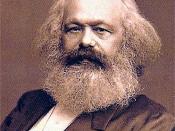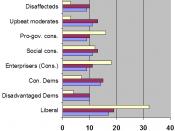What is an ideology?
"â¦the discourse which explains to us the nature of ideology is in many cases both a political foundation of ideologies and a scientific attempt to understand them."
âÂÂâÂÂâÂÂRafael del ÃÂguila, IdeologÃÂa y fascismo, 1982
Ideology is one of the slipperier words in our political vocabulary (Wilkinson, 1992, p. 276). As a notion which first appeared in the late eighteenth-century France, the concept of ideology has undergone many transformations in the two centuries since then (Thompson, 1990, p. 2). In this essay I will attempt to answer the following question "What is an ideology?" using ideas generated by thinkers, scholars and ideologues of previous and current times. I will state my arguments as follows. First, I will begin by introducing the origins of the term ideology and how the study of ideologies emerged during the modern period. Second, I will attempt to convey conceptions of 'ideology' presented by various political thinkers and writers from earlier decades.
Third, I will describe the functions and distinctions of ideologies. Finally, I will conclude the essay summarizing my ideas and present a general notion of the term 'ideology'.
To start with, the Greek philosopher Plato (427-347 B.C.) who stated that "ideas exist in themselves and by themselves, forming a perfect and harmonious universe"; Niccolo Machiavelli (1469-1527) , who submitted a significant ideology reasoning the modern state and the exercise of power, even rigorous power or Thomas Hobbes (1588-1679) who underpinned an ideological foundation for the use of absolute power to preserve order and the state (Skidmore, 1989, p. 1) - these men were one of the first ideologues who generated influential ideas that centuries later developed into something called 'ideologies'. Therefore we come across an inheritor of the Enlightenment, Antoine Destutt de Tracy (1754-1836), who tried to construct a kind...


